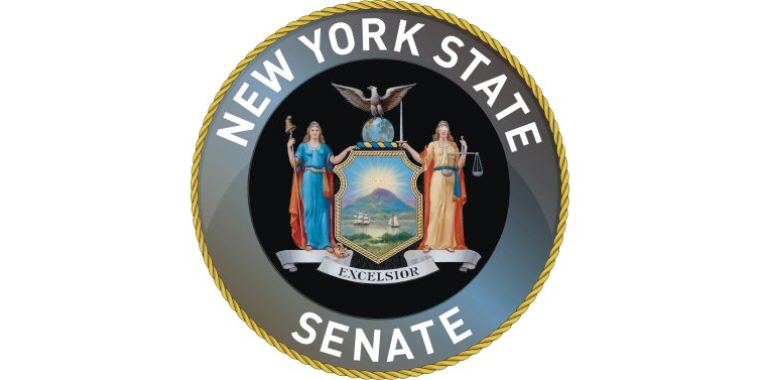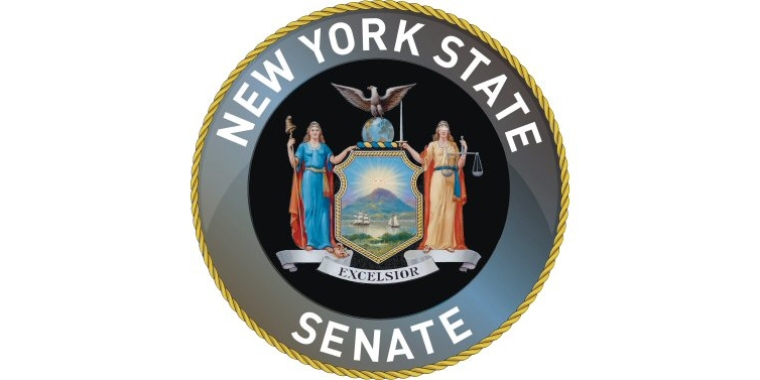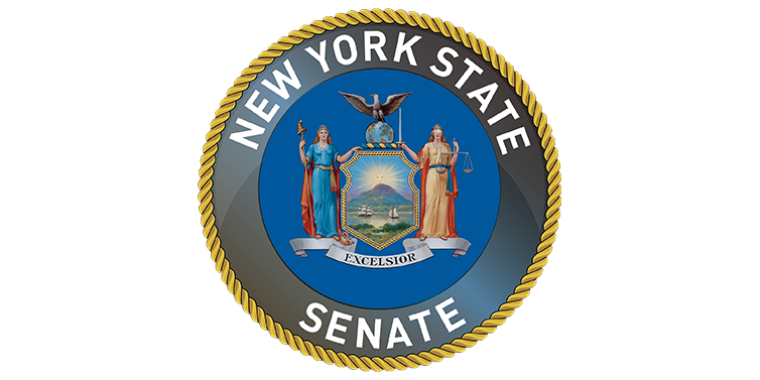
Comprehensive Study on Former J.N. Adam Developmental Center Completed
October 3, 2017
Olean, New York – A study that was necessary to advance the potential sale of the abandoned J.N. Adam Developmental Center has been completed, announced Senator Catharine M. Young (R,C,I-57th S.D.). Senator Young, who, along with Assemblyman Joseph Giglio (R,C,I – 148th A.D.), has led the charge to remove roadblocks to the site’s redevelopment, heralded the report as a key step towards resolution of the issue.
“This study should remove some of the bureaucratic red tape preventing the sale of this facility, so we can get it back on the tax rolls. That would be wonderful and very welcome news to the taxpayers of Perrysburg who have borne the costs associated with this site, including repeated law enforcement responses to vandalism, trespassing and safety issues,” said Senator Young. “The completion of this study offers a thorough review of the site’s redevelopment challenges and options which is crucial to moving forward.”
"I am very pleased that the New York State Office of General Services has completed the study of the former J.N. Adam Hospital in Perrysburg. This is a vital step in reclaiming and reusing this valuable site. It is my hope that we will be able to move forward quickly to turn this land into an attractive area that will benefit our entire community,” said Assemblyman Giglio.
The former J.N. Adam Developmental Center consists of 44 buildings that served as a tuberculosis hospital between 1912 and 1952. The property was transferred to the state in 1952 and later converted into a state-run residential and treatment facility for the Office of People with Developmental Disabilities (OPWDD, previously known as OMRDD). Closed by the state in 1998, many of the buildings, most of which contain asbestos and lead paint, have deteriorated at a rapid pace.
Efforts have been made over the years to place the property up for sale. However, several legal impediments, including a right of reverter clause held by the City of Buffalo, and numerous environmental concerns have been barriers to the ultimate sale of the property.
In 2015, Senator Young and Assemblyman Giglio passed legislation directing the New York State Office of General Services (OGS) and the Office for People with Developmental Disabilities (OPWDD) to produce a report on the best and alternative uses for the property. Governor Cuomo vetoed the legislation but encouraged inclusion of the project in budget discussions. Subsequently, Senator Young secured $235,000 in funding for the study in the 2016-17 budget.
Beginning in the fall of 2016, the Office of General Services developed the report in consultation with the Office for People with Developmental Disabilities (OPWDD) as well as Empire State Development, the Office of Parks, Recreation and Historic Preservation and the Department of Environmental Conservation, as well as outside consultants.
The report analyzed a number of components that bear on the site’s redevelopment prospects including its structural condition, historical significance, reuse options and environmental issues. Among the findings of the report:
Structural assessment: The lack of building maintenance and repair over the past 25 years has left the facility buildings in a “compromised” state, making rehabilitation for reuse, impractical and cost-prohibitive. The report concludes that any redevelopment would likely require demolition or large-scale reconstruction.
Historical significance: The New York State Office of Parks, Recreation and Historic Preservation affirmed that of the 44 buildings that comprise the facility, Buildings 1 – 5 are eligible for a listing on the New York State and National Registers of Historic Places. However, the agency’s assessment recognizes that, because of the structural deterioration, demolition may be necessary.
Redevelopment analysis: The study found that the most viable redevelopment scenario would involve subdividing the 592 acres of undeveloped land into smaller tracts that could be marketed as sites for seasonal second homes, hunting cabins or other recreational uses. The report indicated that the $15 million to $18 million investment that would be required to improve the entire site, including the decaying buildings, precludes the possibility of redevelopment for alternative uses.
“It is crucial that the state and local governments come up with a solution to the issues confronting the J.N. Adam facility. The Perrysburg community has borne the burdens associated with this abandoned property for too long. With the completion of this study, we can now make informed, prudent decisions on the best course of action,” concluded Senator Young.
The entire report can be viewed on the OGS website at https://ogs.ny.gov/bu/dc/jnadamreport.asp
Share this Article or Press Release
Newsroom
Go to Newsroom
Legislature Announces Joint Budget Hearing Schedule
January 16, 2018


